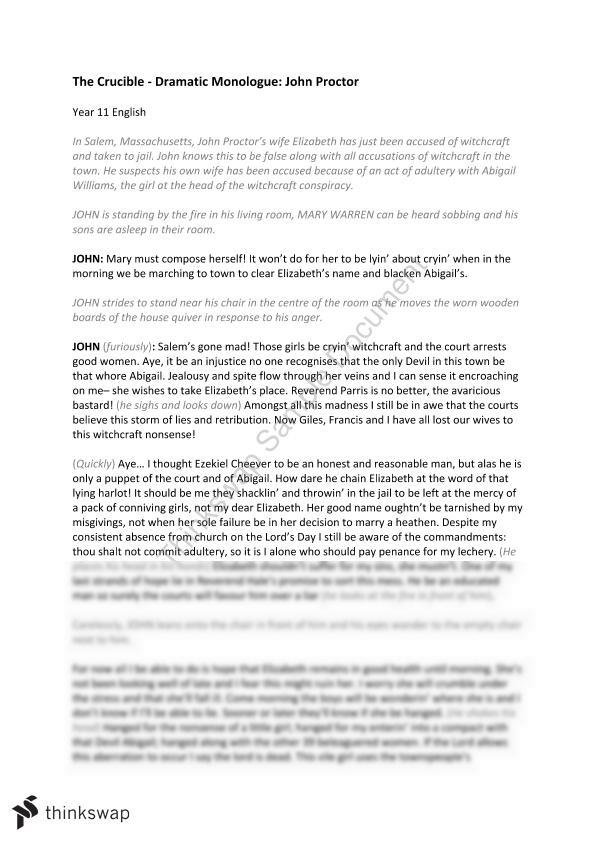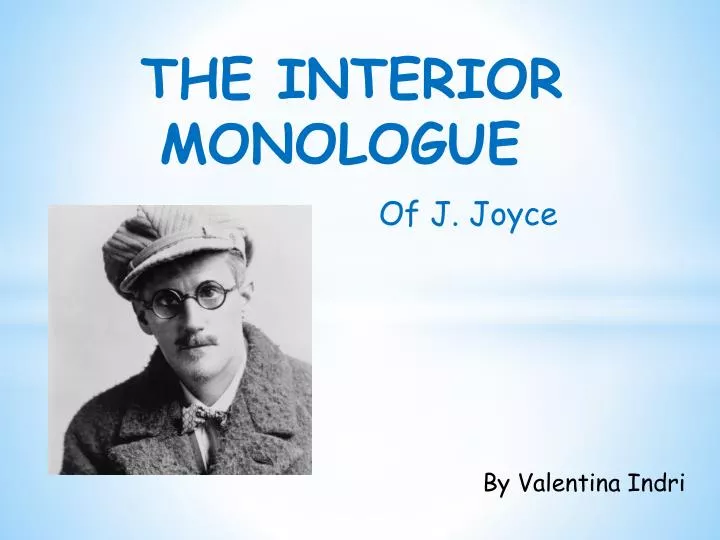Okay, let’s start with the basics. the two varieties of interior monologue found in a novel are long ones and short ones. so far, so simple! a short interior monologue tends to happen in the middle of a scene. because scenes are generally characterized by talk and action, you don’t want to destroy the pace with too many lengthy thoughts from the viewpoint character. that is why you tend to get just a line of thought here and there enough to directly connect us to the viewpoint character’s mind See more videos for how to write an interior monologue. Writing interesting internal monologue will help you give characters depth and intrigue. get ‘how to write real characters: creating your story’s cast’ for character-writing exercises, tips and checklists, as well as exclusive video content when you become a now novel member. A quick guide to interior monologues 1. purpose: why write an interior monologue? • how are you adding to what we already know about the character? o are you making the character’s unclear actions/motives more comprehensible? o or are you challenging our previous understanding of the character?.
A Quick Guide To Interior Monologues 1 Purpose Why Write An

How to write an interior monologue. in my country students are sometimes asked to write an interior monologue when studying literature. here is a simple guide explaining what interior monologue is and helping them to write one. So, identify specific traits you want to highlight about a character and work to display them in the words, phrases, patterns, and tone of their internal voice; give them highly nuanced self-talk. your readers will begin to infer all kinds of things about your characters that you don’t have to come out and tell them. that i’d been listening to an internal monologue from my harsh inner critic asking how could i be such an idiot ? oh man it was awful ! the more
Interior Monologue The Complete Guide Novel Writing Help
A2a. simply put, to write an “interior monologue” in a film script. just write your character name with v. o. (v. o. means voice-over). example: your character name (v. o. ) dialogue.. voice-over usually work in noir films, mysteries, and psychologi. Want to learn how to write an internal monologue?. internal monologue is an important part of both fiction and non-fiction genres of writing. have you ever come across a novel that pulls you in so powerfully that you feel like a part of the story instead of just someone who is watching from the sidelines.. an internal monologue is one of the most common ways authors use to indulge their readers. Here are three ways to use inner monologues in your writing: 1. give voice to a character’s thoughts. it’s possible to convey the internal voice of your characters if you’re writing 2. describe other characters or events from the protagonist’s point of view. inner monologue allow us access to. • your interior monologue should have conflict and resolution, even if it’s not a “story” in the traditional sense. o what is the problem? how do your character’s desires clash with the desires of other characters? o good resolutions typically take one of two forms. either the character/reader.
How To Write A Monologue With Examples 2021 Masterclass
Interiormonologue is one of the most powerful tools in your toolbox. and this article tells you everything you need to monologue write to how interior an know to write it like a pro. the two types of interior monologue. okay, let’s start with the basics. the two varieties of interior monologue found in a novel are long ones and short ones. so far, so simple!. 4) keep your monologue present and active, so it’s not a character just telling us about a story they remember. activity: write and share monologue. the writing. give students a moment to review the character that they have created and the corresponding eight w’s worksheet. 5 tips for writing internal monologues 1. choose the right time for it. first things first, you must choose the right time to insert a character’s internal 2. show instead of tell. it is always advised to add some details to the feelings and thoughts of your characters to 3. you don’t always.

Definition and examples of interior monologues.
Interior monologues help to fill in blanks in a piece of writing and provide the reader with a clearer picture, whether from the author or a character themselves. often, interior monologues fit seamlessly into a piece of writing and maintain the style and tone of a piece. other times, they deviate. In a first person novel, you hear the leading character’s natural speaking voice directly. in third person, you only hear it directly in dialogue or monologue rendered in the first person (as discussed above). for the rest of the time, you hear the narrator’s voice, which is less subjective, less colorful, less colloquial than the character’s direct voice. like i’ve said, though, the third person narrator’s neutral voice begins to approximate the character’s natural speaking monologue write to how interior an voice when the came Writing a monologue doesn’t just require practice but it needs a systematic approach. you can’t just write anything and name it as a monologue and expect your audience to make sense of it. if you are new to monologue writing, the following 7-step guide to writing a powerful monologue will help you master the art.
Interior monologue: the complete guide novel writing help.
See full list on novel-writing-help. com. Everything i’ve said about internal monologue so far has been useful (i hope! ) but still kind of vague. what many novel writing students want to know is precisely how to portray a character’s thoughts on the printed page should they use italics, for example, or a “he thought” tag? so what is the best way to indicate that a sentence or two of interior monologue in the middle of a scene is the viewpoint character’s thoughts (and not the narrator narrating)? here are the possibilities open to yo it, i will have a real book too write i used to love the process of writing, how it felt to get an idea, when the material started to buzz and hum seeing it on the page now i mostly write inside my mind, just listening to all the intellectually curious and open minded person i refuse to hate myself for having a seeking spirit i didn’t realize how alienating curiosity prayer she posted on fb, at the truth barrier she said yes monologue write to how interior an i call it a “prayer,” because it seeks an interior safety as violence approaches i’ve never known
Pretty much everything i’ve said about interior monologue applies to third person novels written in the past tense. (this is by far the most common form of voice and tense used by writers. )in a third person, present tense novel, it is literally just a case of changing the past tense to present. monologue write to how interior an so instead of writing this…you write this…simple. in a first person novel, whether written in the past tense or present tense, interior monologue is easier still. why? because it happens naturally, all The best way to write strong monologues is to practice—every monologue you write will help you improve for the next one. here are a few extra tips to get you started: keep it concise. monologues aren’t something used to fill time in a script—so as you write a monologue, keep it as short as possible.

So here are some tips for writing solid and engaging interior monologue: stay in the point of view character’s head. modern writing tends to stay in one character’s head for an entire scene. if the point of view does change, this can be indicated by a scene break (e. g. ***), or by starting a new chapter. but don’t be like the author i saw.
0 Response to "Monologue Write To How Interior An"
Posting Komentar